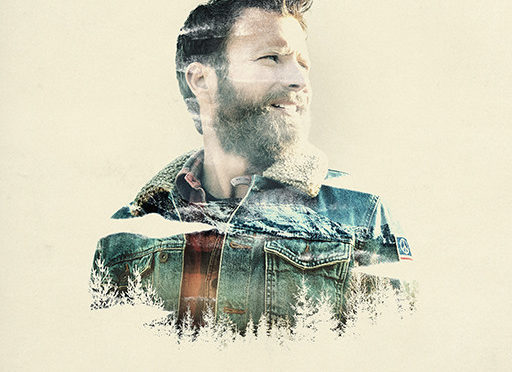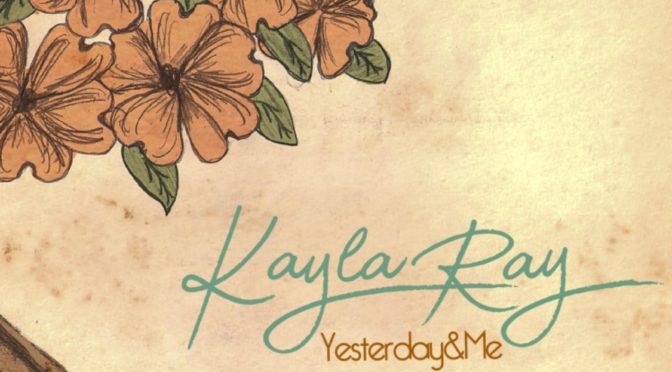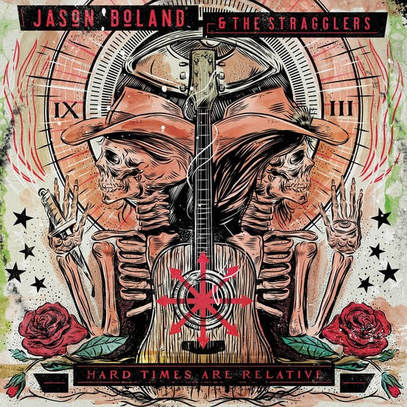Rating: 8/10
A little over a year ago, after Brad Paisley returned to his natural self on Love and War, I wrote a piece detailing which artists I’d like to see follow his lead and just get back to being themselves. Dierks Bentley was first on that list–right up until Black, he was a beacon of hope in the mainstream, managing to blend the traditional and contemporary sounds and themes in a great way to make him one of the best in mainstream country…then we got “Somewhere on a Beach,” and it all went downhill from there. It seemed that Bentley was selling out, and he didn’t even need to do so–he had carved out his own niche perfectly and was seeing airplay and mainstream success without venturing down this road. He was making an album for the wrong reasons, and that was especially disheartening when he’d been such a strong mainstream artist previously.
With The Mountain, we have seen him return to form in fine fashion. “I don’t care how you buy it, or listen to it. I’m making the record for me,” he said of this project, and that’s not only the right way to approach an album, it’s the way Bentley has always been, and the part of him that took charge when he decided to do something different with Up on the Ridge a few years ago. It’s just a recipe for good, heartfelt music, and that’s what Bentley delivers on this record.
He knew he needed to get out of Nashville in order to make an album like this, and the mountains of Colorado were the perfect backdrop. You’ll hear references to Colorado often, even if the song isn’t about that state at all, as well as to the landscape, and the title track here is all about climbing through the mountains of life one small step at a time. But the thing that captures this album’s mood the most is the production. Just as Marty Stuart set the desert to music last year with Way out West, and Brothers Osborne made Port Saint Joe an album that literally sounded like a weathered, forgotten coastal town, Bentley’s album captures that wildness and beauty of Colorado in a really special way. It’s the way the solos only seem to intensify during the outros of songs; instead of fading out, many times we hear the instruments gain in strength as the songs come to an often abrupt end, running free and uninhibited. “The Mountain” goes out on a wave of fiddles and rock guitars, and the otherwise softer, more sedated “You can’t bring me Down” features some mandolin at the end that just comes alive and takes over the whole thing. It’s all so vibrant and fresh, and it takes you to that place in your mind, where you can imagine the snowcapped mountains in “Gooddbye in Telluride” and picture the stars shining through the window in the record’s one characteristic sex song that has become a mark of Bentley’s career, “Nothing on but the Stars.”
The production, though often this album’s greatest asset, can bring it down at times. “Living,” a song featuring lines about finally noticing the birds on the branches and the sunrise, and celebrating those special days when we feel especially alive, would have been better without the drum loops. “You Can’t Bring me Down” feels too pop-leaning as well, particularly with its themes of ignoring Nashville gossip–you’d think it’d also ignore the more mainstream sounds. And “Goodbye in Telluride” is a really cool song lyrically, as the narrator is begging his girlfriend to wait until they leave that magical place before she leaves him, so that his favorite place won’t be ruined by that memory, but the poppier production just really doesn’t go with this song at all. Sometimes, these songs just needed a wilder feel, like the excellent opener, “Burning Man.” That song just explodes and grows more intense as it goes along, and Bentley and Brothers Osborne, who are featured here, do a fantastic job capturing the theme of the record right away. Incidentally, this song is one of the standouts of the whole album.
In addition to the country rock selections and the more mainstream-sounding tracks, Dierks also provides two ridiculously country songs to close the album in “Travelin’ Light” and “How I’m Going Out.” First of all, thank you, Dierks, for showing everyone in the mainstream what exactly “featuring” means and what exactly it means to feature an actual country woman instead of another pop star. Brandi Carlile absolutely soars on “Travelin’ Light,” a track about laying down your past and burdens, and I know it’s a revolutionary concept, but she’s actually got a whole solo verse! Dierks Bentley should be commended here for doing the right thing and picking Carlile to sing on this song; also, they sound outstanding together. “How I’m Going Out” is a reflection on his time on Music Row and an acknowledgement that one day, his star will burn out. He vows to take this gracefully, unlike many who haven’t–Keith Urban, anyone? These two songs are straight-up, three-chord country, and “Travelin’ Light” even displays some bluegrass influence. Together, they form a nice “f off” to the whole establishment and prove that there is still room left in mainstream country for these types of songs.
Fellow fans of Dierks Bentley, this is the Dierks we’ve all come to know and love. This is him being himself, a refreshing blend of styles, from traditional country and bluegrass to modern country rock, and sprinkling in enough mainstream elements to make him accessible to those fans as well. It’s 90% Colorado and 10% Nashville, in that way that only Bentley can deliver. This is everything you want in a mainstream country record in 2018, and although not a perfect album, it’s a damn good one and one which will have staying power. I can’t stop playing this record, and I wouldn’t be surprised if that 8 looks entirely too low by December.



